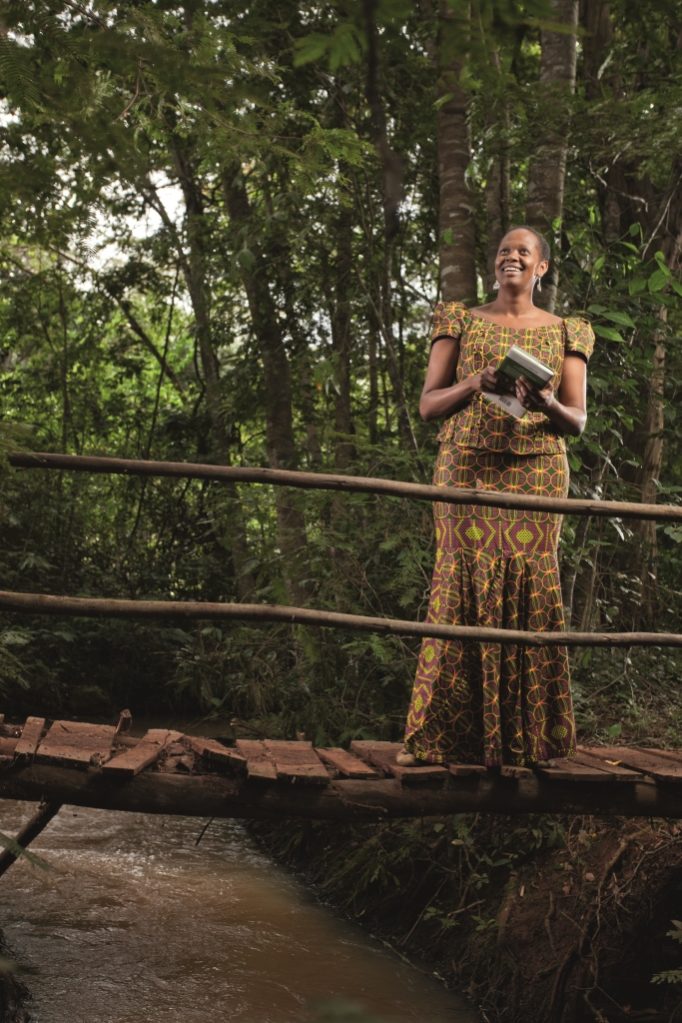Wangari Maathai

Wangari Maathai in Karura Forest which her mother helped save from bulldozer
Kenyan Environmental and Political Activist
It was Professor Wangari Maathai’s personality, anyway, to linger on the dark side, checking under every rock, determined to know the worst that may happen, so as not to be taken by surprise. This was largely instinctual, developed from years of battling the powerful and the mighty who dared disrespect the environment.
About a year before Wangari Maathai’s death in September 25, 2011 she was diagnosed with an aggressive strain of ovarian cancer, immediately put on medication and chemotherapy with the hope this combination could at least prolong her life. Her daughter, Wanjira Mathai, remembers the professor as a strong woman; a selfless person who was incapable of abandoning her passion, even as the energies of the day were abandoning her.
Speaking to Mathai, it turns out that the woman who convinced thousands to plant trees; blocked forest destruction and inspired millions of African girls to think big, worked during her cancer-ravaged final year as if it were another day at the office.
Chemotherapy would knock Maathai into misery, slow her down, but not deter her. The ecological warrior had a grand dream for the Green Belt Movement (GBM), a body she formed three decades ago to plant trees and help village women make a somewhat decent living.
Loading...
“She slowed down deliberately because she had to take care of herself. There was an element of taking things a lot easier; resting a lot more and that was important,” says Mathai of her mother, her boss and her colleague at the GBM, where she is the head of international affairs.
Mathai, a holder of two masters degrees in public health and business administration from Emory University, and a close confidant of her mother, knows why she looked fit. Except for doctors, family and a few close friends, few knew she had cancer. Many where suprised when her death was announced on a chilly Monday morning.
“She was gifted,” says Mathai, explaining why her mother looked younger than a 71-year-old. “She had good genes. She was very active—a lot of people may not know that she exercised a lot; she walked a lot and she was very healthy—six in the morning, she was in a gymnasium almost every day.”
As early as April, Wangari Maathai approved a five-year-action-plan for GBM. Despite the cancer, she was very active in its initial implementation, according to GBM employees, who have now vowed to elevate GBM to new heights.
“Our singular plan is to implement that plan. That is what she endorsed; that is what she wanted us to do; and it is really clear it is very strong and basically it can be done by those of us who are there,” says Mathai, the second of the Wangari’s three children.
Since her death, she says: “There is a sense of loss and there also is a sense of resolve. People feel like we have to make her proud. And that we must.”
President Mwai Kibaki announced the plans to launch the Wangari Maathai Institute for Peace and Environmental Studies at the University of Nairobi in 2010.
Since the approval of the action plan, several co-workers said Maathai spent much time organizing meetings with various donor groups—her last international travel, Mathai says, was a trip they made to the French Development Agency conference in Paris.
“She was sick, but still she was fit enough to attend the conference,” Mathai explains in Karura Forest, a 1,400 hectare forest that her mother fought to protect from developers, who, with the government’s blessing, were about to take it.
“Her focus and her passion was the Green Belt Movement and the Wangari Maathai Institute. She spent a lot of time making sure that we had a complete strategic plan; we had a clear direction for the development of the institute. And as you know, in her wishes, she said she wanted the Wangari Maathai Institute to be her final resting place, so her ashes will be interred there when the institute is finished,” says the 40-year-old Mathai.
Millions across the world have come to respect Wangari Maathai and her boundless courage; through her daughter, I discovered a well of kindness and compassion; both for the environment and all those who inhabit it.
“Selflessness is such a rare thing. In leadership you need that; if you are going to make change you have to be selfless; it’s not about you,” ends Mathai.
Loading...
